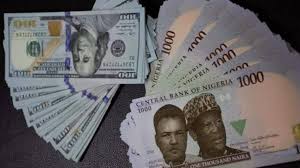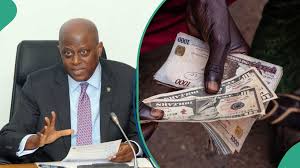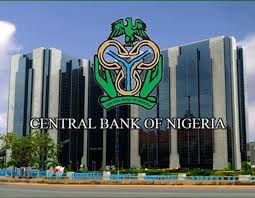The Central Bank of Nigeria (CBN) has officially allowed the sale of US dollars to Bureau de Change (BDC) owners at a rate of N1,580 per dollar. This is meant to make the market more liquid. Through a circular signed by W.J. Kanya, acting head of the trade and exchange department, the CBN told BDC operators how to buy and sell foreign exchange. This new rule, which came out on September 6, is expected to help a lot with meeting the demand for foreign exchange, especially for deals that can’t be seen.
Each BDC operator who is qualified can now buy up to $20,000 in foreign exchange (FX) at the rate set by the CBN. The CBN also said that BDC operators could only charge 1% more than the buy rate when selling foreign exchange to end users. This is to make sure that the market is open and fair. The goal of this rule is to keep the market stable and stop speculative trade, which has caused the exchange rate to change a lot.

Because of the persistent lack of foreign exchange in the market, the CBN made this choice as a strategic move. The central bank wants to ease the pressure on the naira and make things more stable for people and companies that need foreign currency by giving BDC operators access to more cash. The extra cash is also meant to help with trades that can’t be seen, like school fees, travel allowances, and medical bills, which have been hard to do because of the lack of dollars in the parallel market.
The circular stressed the steps that BDC owners needed to take to get the approved FX. Before they can get the $20,000 in foreign currency, BDCs have to put their naira payments into the specific CBN deposit accounts that have been given to them. The CBN also said that confirmations of payments and other necessary paperwork had to be sent to certain CBN offices in Abuja, Awka, Kano, and Lagos so that the approved dollars could be picked up.

Many people in the financial sector are happy about this change because they see it as a step towards making foreign exchange easier to get for legal trades. The CBN’s decision to limit the margin at which BDC owners can sell foreign exchange is also meant to stop people from making too much money and make sure that the dollars get to the right people at the right price.
On the other hand, some analysts are worried about how this approach might affect the parallel market. There are doubts about whether the $20,000 given to each BDC will be enough to meet the growing demand for dollars in Nigeria’s economy, even though the CBN’s action is meant to help. Finally, it’s still not clear how well the 1% margin rule will work to stop price gouging.

Overall, the Central Bank of Nigeria’s (CBN) decision to allow the sale of dollars to BDCs is a big step towards helping the Nigerian economy deal with its foreign exchange problems. The central bank wants to stabilise the naira and make sure that legal deals can go ahead without being held up by a lack of foreign exchange (FX). The full effects of this strategy on the economy and the stability of the exchange rate will become clear in the coming weeks.